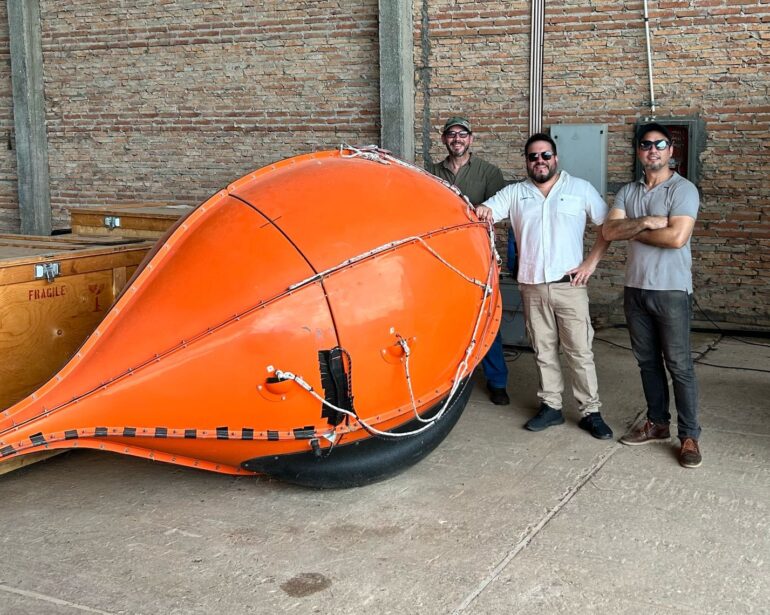The Ministry of Public Works and Communications (MOPC) reports that work in the Mariscal Estigarribia area, in the department of Boquerón, was inspected by the Deputy Minister of Mines and Energy, Mauricio Bejarano, as part of the second phase of Chaco Minerals’ airborne magnetotelluric study for lithium prospecting in the Chaco.
This initiative represents a committed investment of USD 30 million for the prospecting and exploration stages. Chaco Minerals is part of a consortium of five companies utilising advanced technology in their prospecting studies. Each company in the group has been assigned an area of 400,000 hectares, covering 2 million hectares in the Paraguayan Chaco.
The Deputy Minister of Mines and Energy, Mauricio Bejarano, stated that they oversee the second campaign, which began recently and could provide valuable information for Paraguay.
“Above all, we are supporting an investment in a high-risk area where this type of study has never been conducted before. We are very pleased to be accompanying this process,” Bejarano added.
Lithium Prospecting In The Chaco: A strategic project
Néstor Bernal, Director of Mining at the Vice Ministry, explained that they are present at Chaco Minerals’ geophysical prospecting work, a crucial lithium production project for the country, given the high global demand for critical minerals, particularly lithium, for battery production and the energy transition.
Similarly, Rodrigo Díaz Mallorquín, manager of Chaco Minerals, detailed the project’s scope, emphasising that they are currently in Mariscal Estigarribia to launch the second phase of prospecting using the airborne magnetotelluric method.
He highlighted that the first phase was very successful, covering a significant regional area. “Now we are moving forward with the second phase, where we expect good results. The process is progressing well with the constant support of the authorities,” he added.
Underground water resources targeted, in addition to lithium
Beyond lithium exploration, the studies will provide essential data on underground water resources – crucial information for the development of the Chaco region.
In this regard, Bejarano stated that this study will enhance knowledge about underground resources, particularly water, which is vital for Chaco’s development. “We are pleased to continue supporting this initiative, and we will be present whenever necessary,” he emphasised.


